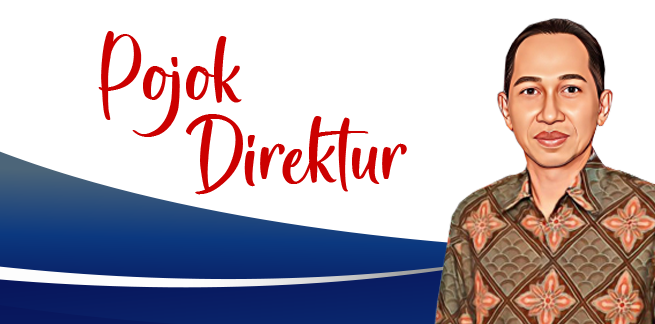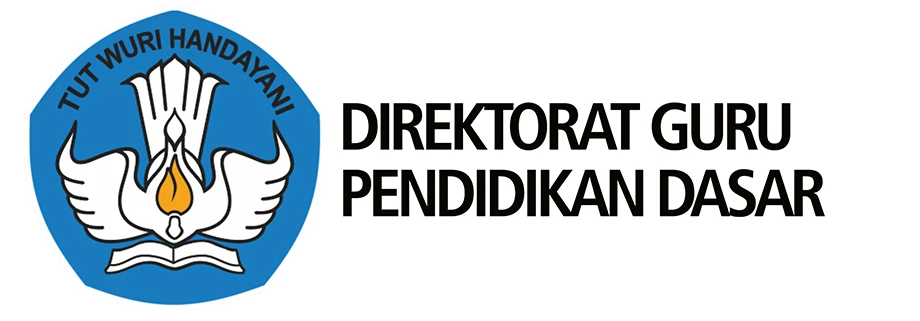Peningkatan Hasil Belajar Siswa pada Materi Aritmetika Sosial Melalui Pembelajaran Berdiferensiasi
DOI:
https://doi.org/10.26811/didaktika.v7i1.1054Abstract
This study aims to improve the mathematics learning outcomes of grade 7 students in Social Arithmetic material at Leilem Christian Junior High School, Sonder District, odd semester of the 2020/2021 Academic Year by using a differentiated learning approach. This research, including classroom action research, was conducted in two cycles and each cycle was held in two meetings. The subjects in this study were 7-grade students consisting of 9 boys and 12 girls. The data collection technique used in this study was in the form of student observation, teacher observation, and learning achievement tests, then the data obtained were analyzed descriptively. The results showed that there was an increase in teacher activity in learning activities in the first cycle an average of 80.65% and an average of 93.18% in the second cycle. Furthermore, in student activity, there was also an increase in learning activities in the first cycle an average of 77.28%, and in the second cycle an average of 90.91%. As for the student learning outcomes test, it was found that there was an increase from cycle I of 76.19% to 90.48% in cycle II. It can be concluded that differentiated learning can improve student learning outcomes.
References
Abdullah, R. (2016). Pembelajaran dalam Perspektif Kreativitas Guru dalam Pemanfaatan Media Pembelajaran. Lantanida Journal, 4(1), 35–49. https://doi.org/10.22373/lj.v4i1.1866
Andini, D. W. (2016). “Differentiated Instruction”: Solusi Pembelajaran dalam Keberagaman Siswa di Kelas Inklusif.
Aqib, Z. (2011). Penelitian Tindakan Kelas. Yrama Widya.
Azzi-Huck, K., & Shmis, T. (2020). Managing the Impact of COVID-19 on Education Systems Around the World: How Countries are Preparing, Coping, and Planning for Recovery. World Bank Blogs.
Bakhtiar, T. (2016). Optimal Intervention Strategies for Cholera Outbreak by Education and Chlorination. IOP Conference Series: Earth and Environmental Science, 31(1). https://doi.org/10.1088/1755-1315/31/1/012022
Barennes, H., Harimanana, A. N., Lorvongseng, S., Ongkhammy, S., & Chu, C. (2010). Paradoxical Risk Perception and Behaviours Related to Avian Flu Outbreak and Education Campaign, Laos. BMC Infectious Diseases, 10(March 2006). https://doi.org/10.1186/1471-2334-10-294
Bartlett, J. D., Griffin, J., & Thomson, D. (2020). Resources for Supporting Children’s Emotional Wellbeing During the COVID-19 Pandemic. Child Trend.
Collie, R. J., Shapka, J. D., & Perry, N. E. (2011). Predicting Teacher Commitment: The Impact of school Climate and Social–Emotional Learning. Psychology in the Schools, 48(10), 1034–1048. https://doi.org/10.1002/pits.20611
Cucinotta, D., & Vanelli, M. (2020). WHO Declares COVID-19 a Pandemic. Acta Bio-Medica : Atenei Parmensis, 91(1), 157–160. https://doi.org/10.23750/abm.v91i1.9397
Darling-Hammond, L., & Bransford, J. (2005). Preparing Teachers for a changing world: What teachers should learn and be able to do. Jossey-Bass. https://doi.org/10.5860/choice.431083
Huang, R. H., Liu, D. J., Tlili, A., Yang, J. F., & Wang, H. H. (2020). Handbook on Facilitating Flexible Learning During Educational Disruption: The Chinese Experience in Maintaining Undisrupted Learning in COVID-19 Outbreak. In Smart Learning Institute of Beijing Normal University UNESCO.
Jihad, A. d. (2013). Evaluasi Pembelajaran. Multi Pressindo.
Karlsen, H., Mehli, L., Wahl, E., & Staberg, R. L. (2015). Teaching Outbreak Investigation to Undergraduate food Technologists. British Food Journal, 117(2), 766–778. https://doi.org/10.1108/BFJ-02-2014-0062
Khan, M., Kazmi, S., Bashir, A., & Siddique, N. (2020). COVID-19 Infection: Origin, Transmission, and Characteristics of Human Coronaviruses. Journal of Advanced Research, 24, 91–98. https://doi.org/10.1016/j.jare.2020.03.005
Li, C., Yang, Y., & Ren, L. (2020). Genetic Evolution Analysis of 2019 Novel Coronavirus and Coronavirus from other Species. Infection, Genetics and Evolution, 82(March), 1–3. https://doi.org/10.1016/j.meegid.2020.104285
Li, T., Lu, H., & Zhang, W. (2020). Clinical Observation and Management of COVID-19 Patients. Emerging Microbes & Infections, 9(1), 687–690. https://doi.org/10.1080/22221751.2020.1741327
Lin, Q., Zhao, S., Gao, D., Lou, Y., Yang, S., Musa, S. S., Wang, M. H., Cai, Y., Wang, W., Yang, L., & He, D. (2020). A conceptual Model for the Coronavirus Disease 2019 (COVID-19) Outbreak in Wuhan, China with Individual Reaction and Governmental Action. International Journal of Infectious Diseases, 93, 211–216. https://doi.org/10.1016/j.ijid.2020.02.058
Lloyd-Sherlock, P. G., Kalache, A., McKee, M., Derbyshire, J., Geffen, L., Casas, F. G.-O., & Gutierrez, L. M. (2020). WHO Must Prioritise the Needs of Older People in its Response to the Covid-19 Pandemic. BMJ (Clinical Research Ed.), 368(m1164), 1. https://doi.org/10.1136/bmj.m1164
Mahase, E. (2020). Covid-19: WHO Declares Pandemic because of “Alarming Levels” of Spread, Severity, and Inaction. BMJ (Clinical Research Ed.), 368(m1036), 1. https://doi.org/10.1136/bmj.m1036
Maine Department of Education. (2020). Coronavirus (COVID-19) Resources for Schools. Maine Department of Education.
Murziqin, R., Idris, S., Usman, N. Hayati, H., Tabrani ZA. (2020). Epidemiology and Psychology in Handling the Psycho-Social Problem Covid-19. Opcion, 36(91), 1310-1333. https://produccioncientificaluz.org/index.php/opcion/article/view/32502
Najeemah M Yusof. (2012). School Climate and Teachers’ Commitment: A Case Study of Malaysia. International Journal of Economics Business and Management Studies, 1(2), 65–75.
Phan, T. (2020). Genetic Diversity and Evolution of SARS-CoV-2. Infection, Genetics and Evolution, 81(February), 104260. https://doi.org/10.1016/j.meegid.2020.104260
Sahertian, A. P. (2013). Konsep Dasar dan Teknik Supervisi. Rineka Cipta.
Sohrabi, C., Alsafi, Z., Neill, N. O., Khan, M., Kerwan, A., Al-jabir, A., Iosifidis, C., & Agha, R. (2020). World Health Organization Declares Global Emergency: A Review of the 2019 Novel Coronavirus (COVID-19). International Journal of Surgery, 76, 71–76. https://doi.org/10.1016/j.ijsu.2020.02.034
Su, L., Ma, X., Yu, H., Zhang, Z., Bian, P., Han, Y., Sun, J., Liu, Y., Yang, C., Geng, J., Zhang, Z., & Gai, Z. (2020). The Different Clinical Characteristics of Corona Virus Disease Cases between Children and their Families in China – the Character of Children with COVID-19. Emerging Microbes & Infections, 9(1), 707–713. https://doi.org/10.1080/22221751.2020.1744483
Thien, L. M., Abd Razak, N., & Ramayah, T. (2014). Validating Teacher Commitment Scale using a Malaysian Sample. SAGE Open, 4(2), 1–9. https://doi.org/10.1177/2158244014536744
Tomlinson, C. A. (2001). How to Differentiate Instruction in Mixed-Ability Classrooms. Alexandria: Association for Supervision and Curriculum Development
Trianto. (2011). Panduan Lengkap Penelitian Tindakan Kelas (Class Action Research) Teoari Praktis. Prestasi Pustakaraya.
Walidin, W., Idris, S., & Tabrani ZA. (2015). Metodologi Penelitian Kualitatif & Grounded Theory. Banda Aceh: FTK Ar-Raniry Press.
Wang, H., Wang, Z., Dong, Y., Chang, R., Xu, C., Yu, X., Zhang, S., Tsamlag, L., Shang, M., Huang, J., Wang, Y., Xu, G., Shen, T., Zhang, X., & Cai, Y. (2020). Phase-Adjusted Estimation of the Number of Coronavirus Disease 2019 Cases in Wuhan, China. Cell Discovery, 6(1), 4–11. https://doi.org/10.1038/s41421-020-0148-0
Watkins, J. (2020). Preventing a Covid-19 Pandemic. The BMJ, 368(February), 1–2. https://doi.org/10.1136/bmj.m810
Worldometers. (2020). COVID-19 coronavirus pandemic. Coronavirus.
Yang, J., Park, E. C., Lee, S. A., & Lee, S. G. (2019). Associations between Hand Hygiene Education and Self-Reported Hand-Washing Behaviors among Korean Adults During MERS-CoV Outbreak. Health Education and Behavior, 46(1), 157–164. https://doi.org/10.1177/1090198118783829
Zacharo, K., Marios, K., & Dimitra, P. (2018). Connection of Teachers’ Organizational Commitment and Transformational Leadership. A Case Study from Greece. International Journal of Learning, Teaching and Educational Research, 17(8), 89–106. https://doi.org/10.26803/ijlter.17.8.6
Zein, M. (2016). Peran Guru dalam Pengembangan Pembelajaran. Journal UIN- Alauddin, 5(2), 274–285. https://doi.org/10.24252/ip.v5i2.3480
Zhang, W., Wang, Y., Yang, L., & Wang, C. (2020). Suspending Classes Without Stopping Learning: China’s Education Emergency Management Policy in the COVID-19 Outbreak. Journal of Risk and Financial Management, 13(3), 55. https://doi.org/10.3390/jrfm13030055
Published
Issue
Section
License
Copyright (c) 2023 Jurnal Didaktika Pendidikan Dasar

This work is licensed under a Creative Commons Attribution-ShareAlike 4.0 International License.
















